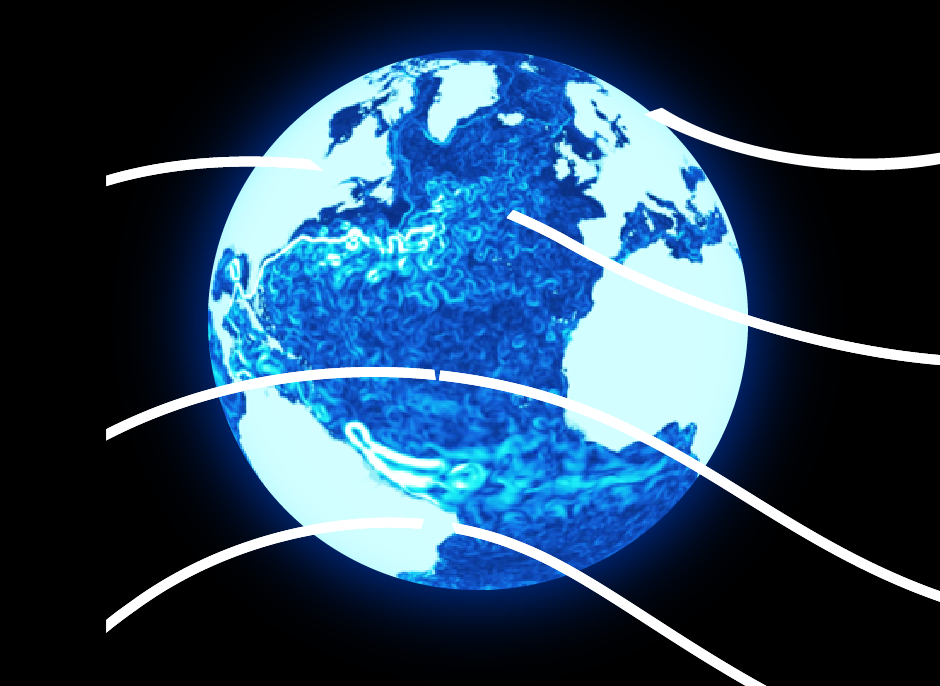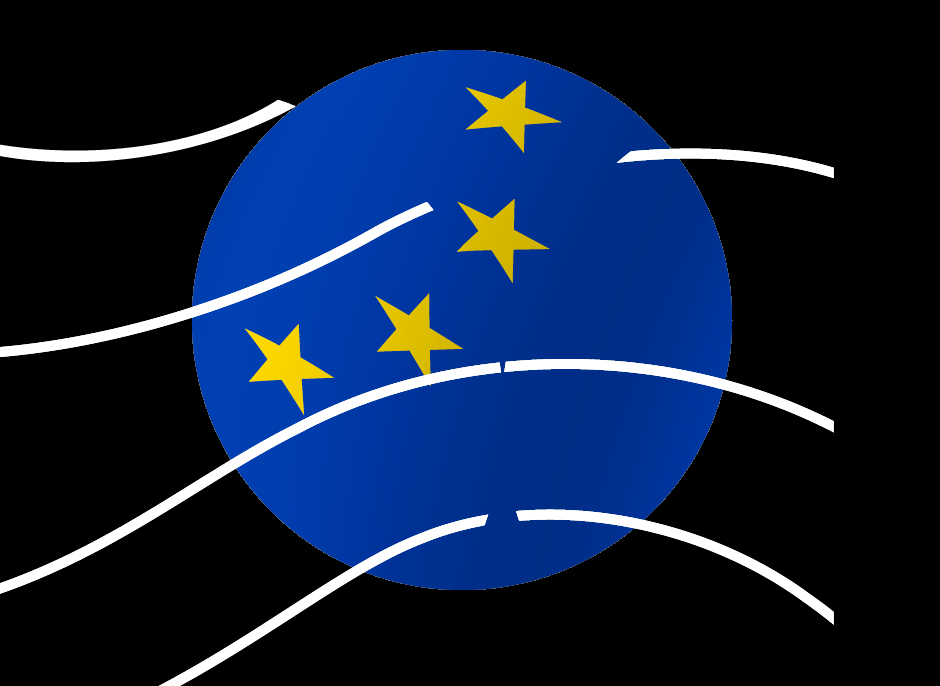
7 frequent asked questions about the European Digital Twin Ocean and EDITO

EDITO-Infra is building the backbone infrastructure for the future EU Digital Twin of the Ocean (DTO), integrating key service components of Copernicus Marine Service and EMODnet. But the EU DTO is a much wider initiative that will rely on the collective knowledge and contributions of EU Member States and a wealth of ongoing initiatives driven by the scientific community, industry & SMEs, civil society and citizens across Europe and beyond. Read further for a glance into the thriving context in which EDITO-Infra is being developed.
1. What is a digital twin?
A digital twin is a virtual model that is designed to represent a physical object, a system or a process, serving as its digital counterpart for practical purposes, including simulation, testing, monitoring, or maintenance. It can offer valuable insights, which can then be applied back to improve and/or interact with the “original”.
2. What is a Digital Twin of the Ocean (DTO)?
In simple words, and as its name suggests, a DTO is a digital “replica” or “copy” of the ocean that we can use to better understand the marine realm. In more technical terms, a DTO is a coherent, high-resolution, multi-dimensional, and near real-time representation of the ocean. It integrates a wide range of existing data sources stemming from ocean observations and combines them with next generation ocean models, leveraging artificial intelligence and high-performance computers to create and respond to so-called “what-if” scenarios.
3. How are Digital Twins of the Ocean useful?
The knowledge generated by digital twins of the ocean has the potential to provide citizens with effective means to be better informed on ocean related matters and to make science-based decisions. For example, a DTO can make it possible to “test” the effects of climate change and man-made pressures on marine life and ecosystems, as well as the effectiveness of policy response. As such, it can enable citizens to better monitor ocean events and to democratize access to policy choices, collectively sharing the responsibility of preserving and restoring the marine and coastal habitats that support the livelihoods of millions of people across the planet.
4. Why is Europe building a Digital Twin of the Ocean?
The EU Mission “Restore our Ocean and Waters by 2030” seeks to restore the health of Europe’s seas and coastal and inland waters by 2030. To do so, it has set targets with regard to increasing ocean knowledge and citizen engagement; protecting marine and water ecosystems; achieving zero pollution; advancing the decarbonization of the blue economy; and enhancing ocean governance.
Increasing ocean knowledge and intelligence is a key challenge and a priority of this EU Mission. Without ocean observations, measurements, and predictions, ensuring a fit-for-purpose management of marine resources and a sound ocean governance is simply not possible. That is why a key action of the mission refers to developing a Digital Twin of the Ocean and all waters, harnessing existing EU assets, such as the European Marine Ocean Data network (EMODnet) and Copernicus Marine Service.
The European Digital Twin Ocean was announced by President von der Leyen in February 2022. Its ambition is to make ocean knowledge readily available to citizens, entrepreneurs, scientists and policymakers. This knowledge will help design the most effective ways to restore marine and coastal habitats, support a sustainable blue economy and mitigate and adapt to climate change.
5. How is EDITO-Infra linked to the European Digital Twin of the Ocean?
The EDITO-Infra and EDITO-Model Lab projects are jointly building EDITO, which will provide the core of the European Digital Twin of the Ocean (EU DTO). The European Commission has mandated the main operators of Copernicus Marine (MOi) and EMODnet (VLIZ) to build, with a co-creative and fully inclusive approach, the backbone infrastructure (“EDITO-Infra”) of the future DTO. The EU DTO will be a public digital ecosystem that will encompass a broad range of sectoral and local digital twins that will be developed and run by, or for, a large variety of users. Besides EDITO, several projects and initiatives are developing many other “building blocks” of the EU DTO.
EDITO-Infra will be developed by upgrading, combining, and integrating key service components of the existing EU ocean observing, monitoring and data programmes into a single digital framework. EDITO-Infra will NOT replace such service components, i.e., Copernicus Marine or EMODnet, nor any related marine research infrastructures, but will rather enhance them by empowering their users with new capabilities brought by this experimental, physical infrastructure.
MOi and VLIZ, supported by Seascape Belgium, are cooperating fully to ensure the inclusiveness of key players, as well as to maintain a fluent communication with stakeholders, which is crucial for the success of the project. An effective collaboration with relevant EU initiatives (e.g., Destination Earth) and projects (e.g., Mission Lighthouses, ILIAD, Blue-Cloud), as well as with the stakeholders and main players in the different areas, will be sought and nurtured. EDITO will also be developed taking relevant scientific priorities into consideration, consulting with relevant EU and international actors.
6. How will EDITO connect to Destination Earth?
EDITO-Infra will be developed in two stages, aligning with the roadmap for the development of the DestinE infrastructure. The first stage (Oct 2022-Jun 2023) will develop a prototype to validate concepts in data harvesting, storage, access and distribution, and to test the orchestration and workflows of models, tools and data, providing a clear blueprint for the preoperational service. The second stage (Jun 2023-Sep 2024) will focus on the alignment with DestinE requirements. The goal is to prepare EDITO-Infra for its future integration within the DestinE infrastructure, which will be addressed through discussions and agreed actions with DestinE’s project services and trusted entities.
7. How will EDITO contribute to the UN Decade of Ocean Science for Sustainable Development?
The UN Decade of Ocean Science for Sustainable Development will implement a framework to significantly advance marine science by 2030. One of the key capacities identified as a target for worldwide improvement is ocean forecasting. The development of digital ocean twins is therefore one of the key objectives of the Ocean Decade. Several initiatives, such as the Ocean Prediction Decade Collaborative Centre, or the DITTO Programme, are devoted to this endeavor.
EDITO-Infra, as the public, backbone infrastructure of the EU DTO,, will be a fundamental steppingstone in this international collaboration, providing the base for future development and integration of forecasting services as a key EU contribution towards the Decade goals. It will provide a public, sustainable infrastructure for marine data access, coupled with new models, tools and standard interfaces that will enable and support the development of local twinning initiatives in Europe and beyond.
EDITO-Infra: The backbone of the European Digital Twin of the Ocean
EDITO's core technology infrastructure
EDITO-Infra aims to integrate and expand existing European assets and capabilities to develop the EU Public Infrastructure digital backbone for the EU Digital Twin Ocean. It will create the capability to integrate all openly accessible marine (and related) datasets and make them available for the European Digital Twin of the Ocean usage through the EDITO-Infra Data Lake.
Community resources
EDITO-Infra will open opportunities for early users who are interested in testing its data lake and resources to support their work, whether for research, innovation, policy, or ocean literacy purposes. A Hackathon Pack will be released in the first quarter of 2024 to invite ocean hackathons across Europe and beyond to leverage EDITO-Infra to further engage and empower their communities.




